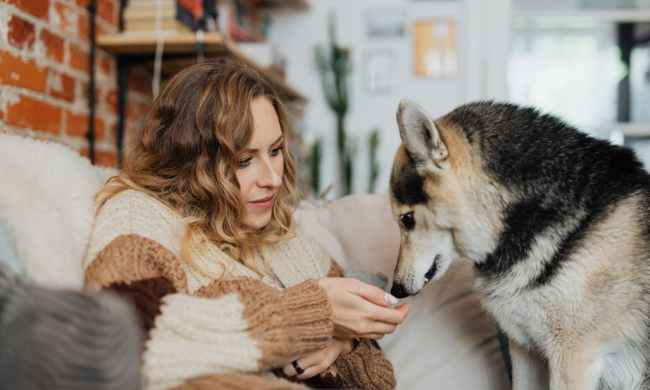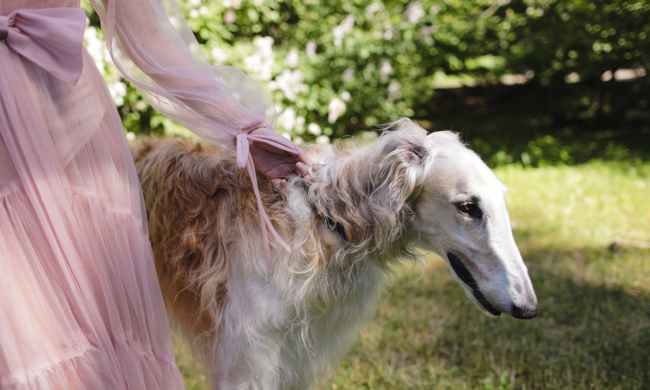Dogs, like many animals, communicate primarily through body language, which includes anything from licking each other to growling and fighting. At first glance, dogfights may look like a reason to push the panic button, but, thankfully, the fight often stems from a solvable problem. Nevertheless, any dog who’s been involved in a physical altercation should be examined by a veterinarian, as injuries aren’t always obvious.
The cause for dogs fighting isn’t always obvious, either. When a new dog is being introduced to the home, though, it’s not difficult to understand why there might be some jealousy, territorial disputes, and lots (scratch that, tons) of getting to know one another.
Luckily, with some knowledge, patience, and love, you can help your dogs get along. Once you understand why there’s a problem and how to stop dogs from fighting (safely, of course), you’ll be better situated to keep your household safe when you bring home a second dog.
Why do dogs fight?

As scary as dogfights may seem, they can be triggered by the most subtle things. This is how fights begin between dogs who live together and seemingly get along — they may not even have an issue with each other! Canine instincts are the leading cause of most fights, though the trigger can vary from dog to dog.
Territorial disputes
Think dogfight, and you probably think it’s a territorial tussle. This can be an issue when a new dog is brought into the home if the existing dog sees the newcomer as a threat. They may see their new friend as an intruder, especially once they realize the new dog isn’t leaving their property.
Whether your dog is protective of his space, a beloved toy, or even of you, you’ll tend to notice aggression between your dogs when the newcomer crosses a certain boundary your existing four-legged roommate has mentally set. They may also be competing for the same resources (food, bed, etc.), so consider buying two of everything to avoid a second round of these disputes. Think of it like an older sibling’s jealousy when a baby arrives!
Redirected aggression
Redirected aggression is an interesting psychological phenomenon that causes issues between many pets. Sometimes, dogs can react to something completely external from the household — like that noisy dog one yard over or the arrival of the mailman — but they still take out their intense emotions on their canine companion because they are the closest thing around. If you think about it, people do this, too, so it’s not a total mystery why strong emotions (not even negative ones; excitement also can cause a dog to lash out!) sometimes cause fights.
Overstimulation
Oftentimes, a fight escalates from a simple, regular play fight that’s gone too far. Dogs that are still getting to know each other may not know how to communicate well, making cues during playtime difficult to discern. Whether arousal or misunderstanding leads to conflict, these fights may be more preventable than others, since you can see that your dogs are getting snappish before things erupt into a full-on scrap.
How to stop dogs from fighting

If you can tell when your dogs are starting to behave aggressively, like when they’re overstimulated, you can and should separate them before it becomes a fight at all. Using baby gates to keep your dogs in different areas of the house is an easy way to keep them safe without excluding either from the home. Hopefully, in these cases, you won’t have to do much more than separate them and give them time to cool down, but sometimes, bringing in a canine behavior expert is the smartest move for long-term peace.
If a fight has already broken out, you may have to resist some of your natural human instincts if you want to avoid being injured by their canine ones. Yelling at your pups may seem like it would shock them out of it, but if anything, it will amplify the arousal and excitement of the situation. Also, and perhaps most importantly, do not use your hands or body to try to stop a dogfight. Even your beloved fur babies can give a nasty bite to someone they love — when instincts take over, they may not even know whom they are biting.
Instead, use a broom, chair, or other large object to help separate the dogs. Spraying them down with a garden hose or a spray bottle of vinegar solution may also be effective. Physical interference may sometimes become necessary, but professional guidance should be sought for those situations.
The wheelbarrow method

Using your hands to help stop a fight between dogs should always be your last resort. This involves the greatest amount of risk and is not a very safe option. However, the wheelbarrow method has effectively separated fighting dogs in desperate circumstances.
You’ll need at least one person for each dog involved. They will walk up behind the dogs and quickly grab their back legs, lifting them up so that they’re balancing on their hind paws like when a person is making a “wheelbarrow.” You will walk the dogs backward, away from one another, until they can be separated. The most difficult part is letting each dog go, as they can still be agitated from the fight. This is why this is not a first choice solution, and why it’s easier with more people to help.
Fighting pups can be worrying, especially when they’re both your beloved fur babies. Understanding why your dogs are in conflict is the most helpful thing you can achieve, though, at the moment, temporary solutions will at least restore peace. Just remember to keep all two-legged folks safe as well. Your dogs may need your help after the fight, but you won’t be able to if you’re injured, too. If this sounds scary, know that you are not the first dog owner to be in this situation — and that there are tons of resources to make this uncertain time a little easier. When in doubt, seek a canine behavior expert’s advice. You got this, pet parents!




